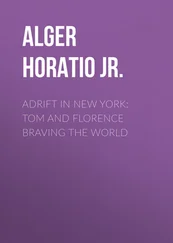And he had lots to do. The Latin School demanded his time, and so did the choir. Nor could he neglect his organ study with his teacher, Böhm; and he increasingly had to step in when the students at the Knights’ School practised courtly dances and the Dancing Master again required a harpsichordist. Furthermore, Erdmann failed to deliver as promised. He apologized over and over again for not having yet written the arias, recitatives and chorus parts. Bach attempted to write a couple of scenes himself, but all his attempts died on the page. He could write the notes, but not the words.
At least he could afford to travel to Hamburg that summer by carriage in order to – so he had roared into the Principal’s ear – visit his cousin Johann Ernst from Arnstadt, who had gone to Hamburg for six months ‘in order to excel better on the organ’, as his cousin had written. Bach stayed with him in his student digs in the Baumhaus quarter. The very next morning he hurried to Dovenfleet in order to see his beloved.
There was a smell of fried fish in the stairwell. Bach climbed the stairs. He saw the neighbour’s door open and immediately close again. He inhaled deeply a few times to get his excitement under control before rapping the door knocker. If she opened now, would she fly into his arms? Would she perhaps let him undo the buttons of her dress again?
He heard steps made by bare feet. Then the door opened a crack, and Bach heard somebody gasp for air, startled. The door opened wider, and now he saw her: Her hair was loose, her face slightly flushed. She wore a white dress, more of a slip in fact. And yes, her feet were naked. She gave him a cursory kiss on the cheek, looked around furtively, and breathlessly whispered something along the lines of ‘You mustn’t be seen here, You must go, go, You will get me into huge trouble,’ and then again: ‘You must go!’
No sooner had she uttered these words when he heard an ugly baritone voice in the background shouting, ‘Sophie?’ and, ‘Where are you?’ and, ‘Who’s there?’ to which she answered, ‘Nobody,’ and slammed the door in Bach’s face.
Bach was stunned.
The neighbour opened her door and started to whisper something. He didn’t understand her dialect and didn’t want to hear anything anyway. He ran down the stairs and fled the house.
As if trapped in an evil dream, he staggered past the Zippelhaus and St Catherine’s Church and turned into a street with the name ‘Grimm’. Conflicting thoughts raced through his head. Who was that man? Her father? An uncle? A beau? Was she one of those opera wenches you read about in novels? And why had she called him ‘Nobody’? Of all possible things, she had called him ‘Nobody’, just as the cunning Ulysses had called himself when asked his name by Polyphemus the Cyclops. Was it a hidden signal? A coded message? But of course she didn’t yet know that he was writing an opera!
That evening, as he sat in the tavern with Johann Ernst drinking red wine, surrounded by noisy students with their feather hats, lace collars and embroidered jackets, he had a hard time concealing his confusion and keeping his secret.
‘Why are you so depressed?’ Johann Ernst asked again and again. ‘Did you get up on the wrong side of the bed?’
‘No,’ said Bach. ‘I didn’t.’
The next morning he climbed into the stagecoach and went back to Lüneburg.
11. ‘It’s the Affections that Matter’
He tried to forget Hamburg, the opera, and Sophie Agneta Petersen, but couldn’t. On the contrary. The more he tried not to think about her, the more he thought about her. But as hard as the mortification was to bear, it also inspired him enormously. The disappointment turned into a mania for work, and since he was in the right mood for it, he composed the aria Ulysses sings when he learns from Eurylochos how Circe has turned his companions into pigs. Ulysses is furious at Circe – but in the end succeeds in winning her over! Hermes helps him – Hermes, messenger of the gods –with the sword that he gives him. Bach’s Hermes was Georg Erdmann, and his own sword was music . He was determined to transform the defeat into a triumph! This opera, his first great work, would astonish the world. And he would still win Sophie Agneta Petersen in the end!
He went to Hamburg a few more times this year, but made no attempt to see his mistress again. Actually that’s not true: he did – but only in the opera house, where he sat next to Reincken in the box and expired with longing when his Eurydice, in different roles now, raised her seductive soprano. Eagerly, Bach sucked up everything he could learn about the opera. Reincken explained to him the difference between the French style of overture (which was always somewhat solemn in the beginning because it accompanied the appearance of the King) and the Italian style, which always began at a fast pace and was called a concerto . He also told him about the importance of the voices – which parts required a bass, and which a tenor or baritone, a contralto or soprano. Bach never tired of asking the maestro about this or that detail; the arrangement of the choruses, for example, and whether one might try one’s hand at a choral fugue – ‘A choral fugue? In the opera? God forbid,’ said Reincken – and of course he wanted to know everything about the instrumentation, from the harpsichord to the violins, up to the oboes and the bassoon.
‘You do pester a man with a lot of questions, don’t you,’ said Reincken. ‘Almost as if you were thinking of writing an opera yourself.’
Bach shrugged and said nothing. When, on another occasion, Reincken asked him directly whether he would like to compose an opera, Bach shook his head and assured him that his goal was to become an organist at a major church, just as the maestro had done himself.
‘Fine, fine,’ said Reincken, ‘but if I could begin again today, I would definitely compose operas. I’m an old man now. You don’t change horses at my age. But if I were as young as you, Bach? On the face of it, opera can merely serve up tawdry entertainment and pleasure. But then again, no other art form is capable of grabbing people by their emotions – their affections – quite like the opera. And it’s the affections that matter, Bach, remember that, it’s the affections that matter.’
‘I want to learn everything about the affections,’ said Bach to Erdmann, once he was back in Lüneburg. Of course, he’d known for a long time, he said, that music has the power not only to present passions and emotions of all kinds, but also to kindle them in the hearts of the listeners; but now he would like to find out everything about it. The question, for instance, as to how and by what force music arouses different passions in our soul. How is it possible?
‘Well,’ said Erdmann, ‘the philosopher René Descartes found out many decades ago how music affects our soul. It’s quite simple: A note or a sequence of notes causes the air to vibrate. The air hits the eardrum, which in turn sets three little bones in motion. These bones are connected with delicate and even more delicate nerves that lead to the pineal gland, and the pineal gland, as we all well know, is the seat of our soul. In the soul, namely in the pineal gland, everything comes together – the messages and commands of the intellect and the animal spirits that rise in the blood from the heart to the brain. In the pineal gland, the animal spirits are affected by the intellect, so they are changed when they return to the body and set the muscles in motion. So everything is wondrously connected with everything else, the body with the brain, the intellect with the soul, and so is music with the animal spirits, which in turn are the cause of our passions.’
Читать дальше












